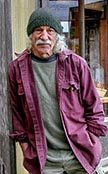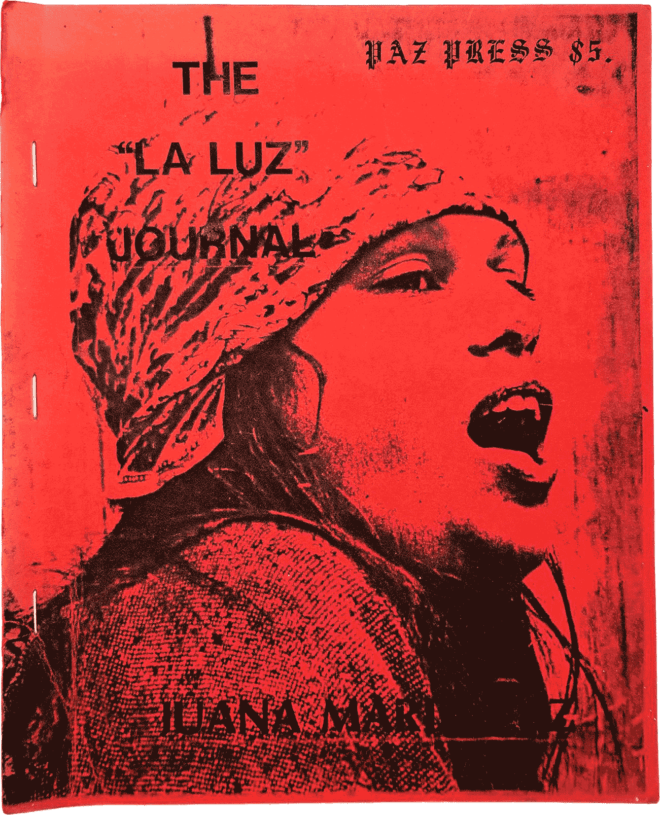It’s not common knowledge that for several decades at the end of the last century, Southern Oregon was the heartland of lesbian separatism. Midway between San Francisco and Portland, the region is sparsely populated. A cluster of steep canyons forested with Douglas fir, sugar pine, and Pacific madrone are framed by one wild river to the north, the Umpqua, and another to the south, the Rogue. Tucked among the canyons are picturesque pockets of meadowland. Lesbian locals termed the I-5 corridor that cuts through this crumpled topography the Amazon Highway; they sometimes called the hills ‘Mama’s Many Breasts.’
Nestled here was a thriving community of women-owned, women-built enclaves. At the heyday of the movement, from the mid-1970s to the early ’80s, eight separatist collectives flourished in Southern Oregon, with a ninth just south of Portland. Their parcels ranged in size from seven to 150 acres, and were home to anywhere from four to 30 women. Thousands of lesbians visited, from all over the world.…
…Each community was born from the same conviction: Patriarchy had created a destructive, unjust society that needed to be junked. The aim was a mode of living that respected the earth, eradicated class oppression, rejected paradigms of dominance, and regarded female biology as noble, even sublime. From casual nudity to consensus decision-making, the land-dykes overturned assumptions they’d inherited. They built their own houses, invented practices of worship, modified language, and attempted wealth redistribution. They loved each other fiercely, and insisted on a politics that began and ended with that love.
The aim was a mode of living that respected the earth, eradicated class oppression, and regarded female biology as noble, even sublime. At the time of this writing, some of the lands have long since been sold, and some remarkably persist, albeit at much-reduced scale. What, now, can be learned from the tribulations of these women building a new society by hand in the American wilderness? Much has changed in the last 50 years. Uncloseted lesbians are not the anomaly they once were, and elements of the land-dykes’ environmentalism — so unconventional in the 1970s — are now accepted truths. Queer identity remains indelibly associated with cities, to the degree that rural exceptions are easily sidelined. Gender-exclusive alliances, once so liberatory, now seem less so. The separatist legacy is sullied by some separatists’ antipathy towards trans women.
Long article from Maui Surfer:
placesjournal.org/article/on-wimmins-land-the-heartland-of-lesbian-separatism



In 1977, my wife and drove around the US in Ford Econoline van for over four months.
We’d been in Washington state and were somewhere in Oregon. We stopped in a small town with a tiny business district: a gas station, a post office across the street and next to it, a bright cottage turned into a small diner.
At the diner, the woman who waited on us only addressed my wife, who ordered breakfast fir both of us. The waitress was extremely complimentary towards my wife, to the point of flirtatiousness. Looking out the window, I suddenly realized there were no men in town, except for me. Later, we settled in Tampa, where I worked with openly gay men and women for the first time. Some of the lesbian women I worked I became friends with, while others were openly hostile towards men in general. I related my Oregon story in a casual setting and a woman who didn’t like guys spoke up and named a few places where she’d lived out there and described them as what all lesbians should aspire to build. Until now, I’d only seen sporadic mention of these places.
Am I wrong in thinking that the communes of the 60s and 70s died off because of the greater societal economic pressures and that sharing and working towards a common goal is harder than most realize?
Here in Florida, we had a lesbian collective at Vilano Beach, a collection of small beach front cottages, surrounded by a tall privacy fence. Basically, the folks who stayed, aged out. They sold the land, which had become quite valuable, and bought land either in Missouri or Michigan and moved.
“Mama, Mama! Many Worlds I’ve come since I first left Home.”